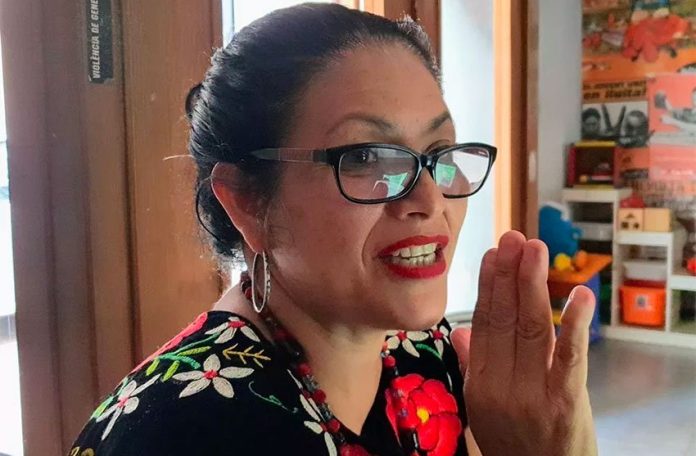Four indigenous residents of communities located in the Isthmus of Tehuantepec have filed an injunction request against the government’s trans-isthmus trade corridor project, and more legal action is in the works.
Three Mixe people and one Zapotec man claim in their injunction application that the project – which includes the modernization of a railway between Salina Cruz, Oaxaca, and Coatzacoalcos, Veracruz – violates provisions of the constitution and human rights conventions.
The four complainants say that the body charged with executing the Isthmus of Tehuantepec interoceanic corridor was created without prior consultation of the indigenous communities that will be affected.
The failure to consult, they argue, violates Article 7 of the International Labor Organization’s Indigenous and Tribal People’s Convention.
“In a completely unilateral way, the Mexican government has designed a plan that is clearly invasive and which totally affects our land. Consequently, [the plan will] completely alter our way of life and organization,” says the injunction request, which was filed in a district court in Salina Cruz.
“Given the magnitude of the project that the government intends to execute, and considering that carrying it out poses a serious risk to our existence as indigenous peoples, there is no valid argument to deny our participation.”
According to Betina Cruz Velázquez, coordinator of the Assembly of Indigenous Peoples in Defense of the Land, residents of five other indigenous communities are planning to launch their own legal action against the trans-isthmus project this week.
Residents of the Zapotec towns of San Francisco del Mar, San Francisco Ixhuatán, Álvaro Obregón, Zanatepec and Santa María Xadani agreed to file separate injunction requests at town meetings, she said.
In late March, the government held public meetings in isthmus municipalities in Oaxaca and Veracruz to seek indigenous communities’ views on the trade corridor but they allegedly didn’t comply with International Labor Organization protocols.
The National Indigenous Congress and the Zapatista Army of National Liberation, among others, argued that the consultation was a simulation and that the rail project would go ahead regardless of the opinions voiced by local residents.
Cruz Velázquez said in June that the train is part of old “neoliberal policies” that have not gone away.
Other aspects of the trade corridor plan include upgrades to the ports of Salina Cruz and Coatzacoalcos, modernization of highways in the region and improvements to telecommunications connectivity.
The Secretariat of Communications and Transportation (SCT) announced in January that 2.5 billion pesos (US $132 million) will be allocated to the project this year.
It has long been argued that establishing a rapid link from the Gulf of Mexico to the Pacific Ocean across the narrowest stretch of land between the two coasts would enable Mexico to compete with the Panama Canal.
However, the Mexican Shipping Agents Association said earlier this year that any notion of that being possible was a “pipe dream.”
Source: El Universal (sp)
